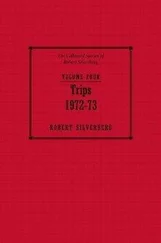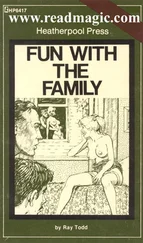Robert Stone
Fun With Problems
It is actually possible to have fun with problems.
— REHAB VIDEO, CALIFORNIA, 1999
HAMPTON COUNTY LOCKED them down in a nineteenth-century brick fortress of a jail, a penitential fantasy of red brick keeps and crenellations. The sight of it had twisted many a cocky smile. Citizens waiting at its marble stoop could contemplate the solipsisms of razor wire and the verse of all-weather civic poetry on the rosy keystone: LEARN TO LABOR AND TO WAIT.
Most of the time, Peter Matthews, an aging attorney with the public defender's office, liked the place for its spooky melodrama. On the days his presence was required there, he had a six-mile country drive to town. In summer or fall, when the weather was nice, it could be very pleasant. The unimproved road followed a high wooded ridge that enfolded the oxbows of a wide, slow-moving river. Corn and shade tobacco grew along the banks, and two of the switchbacks had preserved wooden bridges. In ice or wintry weather, the drive was work.
One Monday, toward the end of the football season, Matthews took a call from a young Cape Cod burglar called Georgie Laplace. Laplace, who was heedless and unlucky, had involved himself in the theft and disposal of some turquoise Hopi jewelry. To clear their books, the police on the Cape had constructed a useful narrative around him. Then they had transported Georgie clear across the state to Hampton's monster jail, where, it was hoped, he would succumb to homesickness and fear and endorse their version in court.
It was an outrage. In spite of the weather, Matthews decided to drive in.
On television, they were advertising the game later that night with file footage from Miami. Matthews lingered at the tube just long enough to glimpse the sunny margin of the field and get a blimp's-eye view of the shoreline. Since his divorce, he had been renting two rooms in a former bed-and-breakfast, a big farmhouse secured from the road by an absentee farmer's cornfields. It was a quiet place, comfortable enough when his mood was right. His fellow tenants were a couple of retired New York schoolteachers who lived upstairs and a tall man named Stokely, a locksmith on salary from a local hardware store who drove the company car. Everyone got on well. Nodded greetings and agreeable observations were exchanged. The owners of the property, Mr. and Mrs. Esquivel, lived in another farmhouse, fifty yards off: they had fled Colombia in the grip of La Violencia and had little tolerance for conflict.
On his way to the carport, Matthews noticed Mrs. Esquivel's cold, experienced eye on him. Little escaped her.
He eased the car over the wet double track to the paved road and started on his way to town. The ride was faster and easier by interstate, but Matthews had his ritual commitment to the two-lane road. That wet afternoon, it gave him little pleasure. The horizon had closed around him, and he moved in the face of an icy rain that thickened on his windshield wipers. At the first stop sign, he skidded, ending up at a crazy angle to the yellow line. After that, he turned up the radio for company, but there were only call-ins. Whiners, know-it-alls, Christers. An alienated lot.
In the depths of his soul, Matthews hated Hampton County. The local press sometimes idealized the place as the Happy Valley. Matthews liked to amuse his friends by calling it the Unhappy Valley, and he had a repertory of cruel, funny anecdotes about it. At the same time, the Valley was a particularly easy jurisdiction in which to make a living. His ambitions had faded, and life could be various and perversely satisfying in Hampton. When Matthews launched into his Unhappy Valley routine it was his own life and fortunes he was describing, and most days he could tolerate those well enough.
In fact, the Valley was his native place, and he had been watching it all his life: its preachifying and its secret horrors. The recently arrived professionals, academics and technologists, had brought to Hampton a self-conscious blessed assurance, unaware of the beatings, arson and murder that thrived in the hills around their white-trim shutters. Matthews knew the place's black heart. It was his living. Where the road descended to the river, a mile short of the first covered bridge, there stood a lone wooden tenement, the survivor of a company street of mill houses dating from the industrial age. All its companion houses had burned to the ground years before. Nearly every time Matthews passed the house, he saw children, a squadron of little whitey tow-heads who, in the time he had lived at the Esquivels', seemed never to change in age or approximate numbers. The house was unpainted and usually had one of its windows glazed in plastic.
Through the sleet, he saw one of the children standing in an open doorway, dressed for a summer afternoon. It was a girl of about ten, in baggy jeans and a yellowing, ragged hand-me-down T-shirt. She stood absolutely still, indifferent to the stings of the weather, unblinking. She wore a necklace of glass stones and shiny metal. Her stare was profound and uneasy-making.
He waved to her, and she was gone. When he pulled out to cross the intersection, it was as though she had not been there.
He thought perhaps the solitude was finally getting to him, leaving him impulsive and eccentric, even on his sober days. Especially on his sober days, each one marked with small errors of judgment. The sight of children sometimes made him homesick for his married past, getting his son to school, drinking a beer with his wife.
During the seventies, everyone had said it was a tough time to bring up children; in fact, it went on being that way. The eighties and the nineties were no better. He and his wife had been lucky. Their only boy was sensible and decent, partaking of his mother's rectitude and perhaps a little too much of his own "pessimism." So there was that at least. He called the thing he had pessimism.
Halfway up a hillside, a turn-of-the-century Volvo passed him with cheery disregard. Its bumper sticker read "We Are One Family," the town motto — the reference was to the imagined relationship between Hampton's inhabitants and those of the great globe itself, which was displayed in congenial artsy abstract, a smiley-face Planet Earth complete with latitudes and longitudes. Was it more frightening to raise children in the place Hampton had become? He could hardly say; his perspective was that of a criminal lawyer who knew the annals of wickedness.
A couple of miles farther on, Matthews came in sight of town. The famous jail, the red brick rat-house minarets attached to a new wing of frosted Martian glass, stood beside the river between a pair of old paper mills, whose lofts were now mainly occupied by artists in flight from the city. There were also a few shabby offices, headquarters to some social-services organizations. These were relics of the age of concern, grown decadent with underfunding, long on ideology and short on practical solutions. One scarred band specialized in raiding the migrant-pickers' cockfights. A crazy poet did children's theater the children dreaded.
Matthews parked his car in the sheriff's lot and eased up the marble steps to the old entrance. In a worn canvas case he had the recorded life and works of George Edgar Laplace. Settled in the lawyers' area, Matthews checked his records. At his previous arrest, the kid had been still too young for Hampton; the conditions of his sentencing specified some form of juvenile detention. This time they could keep him there.
As a child, George had been incorrectly diagnosed as retarded and spent years in the State School, equipped with all too much of the self-awareness he was supposed to have been spared. Some of the more dedicated teachers there had befriended him. But the school was run not by its staff but by inmate youths of perfectly adequate intelligence, eccentric only in their cruelty and unwanted at home. George inclined to drugs for self-medication. The drugs placed him in a criminal milieu, a quarter badly suited for such an unadventurous, asthmatic, overimaginative person.
Читать дальше












